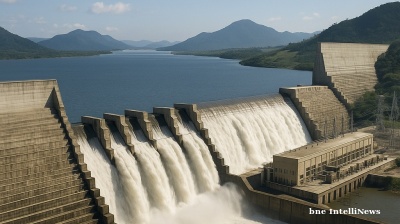Tens of thousands are estimated dead, nearly 13mn people have been displaced, and almost 25mn face serious food insecurity in Sudan’s spiralling conflict, making it “far and away the largest hunger and displacement crisis in the world right now,” Dr. Matt Ward, deputy director for Africa at Oxford Analytica, said during a recent webinar.
“The dynamics in the war shifted considerably over the course of this year,” Ward said. This followed a late-2024 offensive in which Sudanese army forces pushed the paramilitary Rapid Support Forces (RSF) out of much of central Sudan and the capital, Khartoum. But while Sudan’s armed forces (SAF) may consider the war effectively won, “nothing could be further from the truth”.
Ward said Sudan now has “a de facto partition”, with the SAF dominant in the centre, north and east, while the RSF holds much of the south and west.
“One glaring exception is in El Fasher, where the RSF has been unable to capture the capital of North Darfur despite a siege for more than a year,” Ward said. “However, fighting is intensifying there and this is a dynamic we expect will almost certainly continue until the RSF eventually captures the town.”
Meanwhile, “fighting over contested areas such as North Kordofan in northern Sudan is likely to continue, perhaps even intensify, especially if the RSF can capture El Fasher and free up forces to fight on other fronts,” he said.
Both sides have demonstrated the ability to strike deep into each other’s territory, thanks in part to support from external patrons. Although these attacks are costly and unlikely to be sustained indefinitely, Ward expects them to remain “a recurrent if periodic feature of the conflict going forward.”
For now, “both sides are focused on establishing new governments in the areas they control, extending the struggle for power and legitimacy from the military to the political domain,” he said. However, “these efforts are unlikely to change dynamics on the ground significantly, and claims to be devolving power to civilian administrations are likely to be little more than a façade.”
Ward said there are currently “no active or credible efforts to end the war.”
The US has indicated it may be willing to resume its role as mediator, floating plans to reconvene the so-called Quad comprising the US, Saudi Arabia, the UAE and Egypt. “In theory, Washington has considerable leverage it can bring,” Ward said.
However, “in practice, there are enormous differences between Quad members, some of whom are actively supporting rival Sudanese factions,” Ward added. “These differences have so far derailed efforts to revive this modality.”
“Whether Washington is engaged enough to use its weight to overcome these differences is very unclear, especially as this could impinge on other, more crucial issues for the US,” he said.
Even if mediators could align, Ward warned it is “very hard to envisage a peace deal that both of the belligerents in the Sudanese conflict would agree to or abide by.”
“As such, we firmly anticipate that the conflict will grind on,” Ward said, with both sides seeking to consolidate their positions in their respective spheres of influence while continuing attacks aimed at undermining the other.
Opinion

COMMENT: Czechia economy powering ahead, Hungary’s economy stalls
Early third-quarter GDP figures from Central Europe point to a growing divergence between the region’s two largest economies outside Poland, with Czechia accelerating its recovery while Hungary continues to struggle.

COMMENT: EU's LNG import ban won’t break Russia, but it will render the sector’s further growth fiendishly hard
The European Union’s nineteenth sanctions package against Russia marks a pivotal escalation in the bloc’s energy strategy, which will impose a comprehensive ban on Russian LNG imports beginning January 1, 2027.

Western Balkan countries become emerging players in Europe’s defence efforts
The Western Balkans could play an increasingly important role in strengthening Europe’s security architecture, says a new report from the Carnegie Europe think-tank.

COMMENT: Sanctions on Rosneft and Lukoil are symbolic and won’t stop its oil exports
The Trump administration’s sanctions on Russian oil giants Rosneft and Lukoil, announced on October 22, may appear decisive at first glance, but they are not going to make a material difference to Russia’s export of oil, says Sergey Vakulenko.




